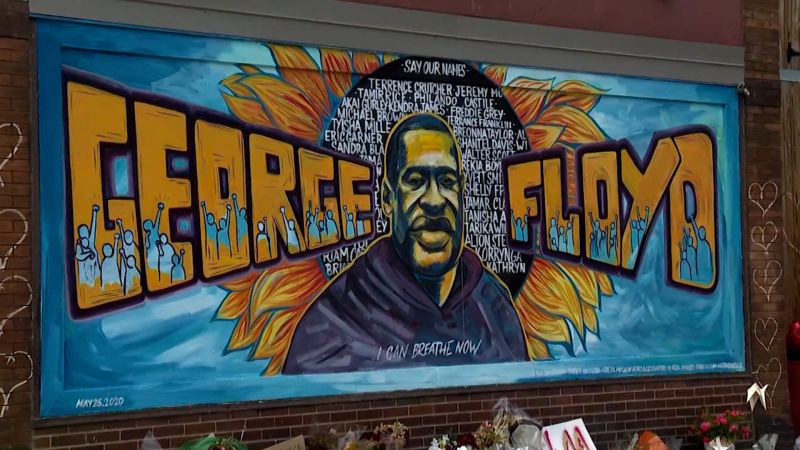The article highlights the ongoing struggle for justice and remembrance surrounding George Floyd's legacy, five years after his tragic death. It centers on Dr. Shareeduh McGee, Floyd's cousin, who passionately advocates for police reform and community engagement, driven by the fear that his story may fade from public consciousness. The narrative emphasizes the importance of activism in keeping Floyd’s memory alive and promoting systemic change.
Purpose of the Article
The intent behind the publication appears to be twofold: to raise awareness about the ongoing issues of police reform and to honor George Floyd's legacy. By spotlighting Dr. McGee's efforts through her foundation and community involvement, the article seeks to inspire readers to reflect on the progress made in the fight against police brutality and the work still required to achieve meaningful reform.
Societal Perception
This article aims to foster a sense of urgency about social justice matters, encouraging readers to recognize the importance of activism in preventing historical figures from being forgotten. It positions George Floyd not just as a victim, but as a catalyst for change, thus reinforcing the narrative that social justice is an ongoing battle requiring continuous effort and awareness.
Potential Concealments
While the article focuses on positive activism and community engagement, it may obscure the complexities and challenges inherent in achieving police reform. By primarily highlighting Dr. McGee's efforts and the foundation's work, it risks downplaying the broader systemic issues and the multifaceted nature of the fight for justice.
Manipulative Elements
The narrative might contain manipulative aspects, particularly in its emotional appeals. By emphasizing the familial connection and Dr. McGee's personal investment, it evokes sympathy and encourages a direct emotional response from readers, potentially overshadowing a critical analysis of progress or failures in police reform efforts.
Truthfulness of the Article
The article appears to be grounded in truth, presenting factual information about Dr. McGee's activities and the broader context of George Floyd's impact on social justice movements. However, the emotional framing and selective focus on certain aspects may lead to an incomplete picture of the current state of police reform.
Target Audience
The piece seems to resonate primarily with communities advocating for social justice, particularly those involved in movements against police violence. It aims to engage individuals who are already aware of the issues at stake, as well as those who may be inspired to take action in memory of Floyd.
Economic and Political Implications
While the article itself may not have direct implications for the stock market or economic trends, the broader movements it discusses can influence political discourse and policy decisions. Heightened awareness and activism can lead to legislative changes, potentially impacting sectors related to law enforcement and social services.
Global Context
In terms of global power dynamics, the article reflects ongoing discussions about race, justice, and systemic reform in various societies. George Floyd's case has had international repercussions, sparking protests and discussions worldwide, thus linking the article to broader global movements for justice and equality.
Artificial Intelligence Influence
There is no clear indication that artificial intelligence played a role in the creation of this article. However, if AI were involved, it might have influenced the framing and tone to evoke specific emotional responses, such as empathy or outrage, thereby subtly guiding the reader's perspective.
Conclusion on Manipulative Nature
The article's emotional framing and focus on personal narratives could be seen as a form of manipulation, aimed at rallying support for ongoing activism. By emphasizing personal connections and the urgency of remembrance, it encourages readers to align with the cause without delving into the more complex, often contentious discussions surrounding police reform.
In summary, the article serves as a reminder of the importance of remembrance and activism in the context of social justice, while also navigating the delicate balance between emotional appeal and factual representation.
